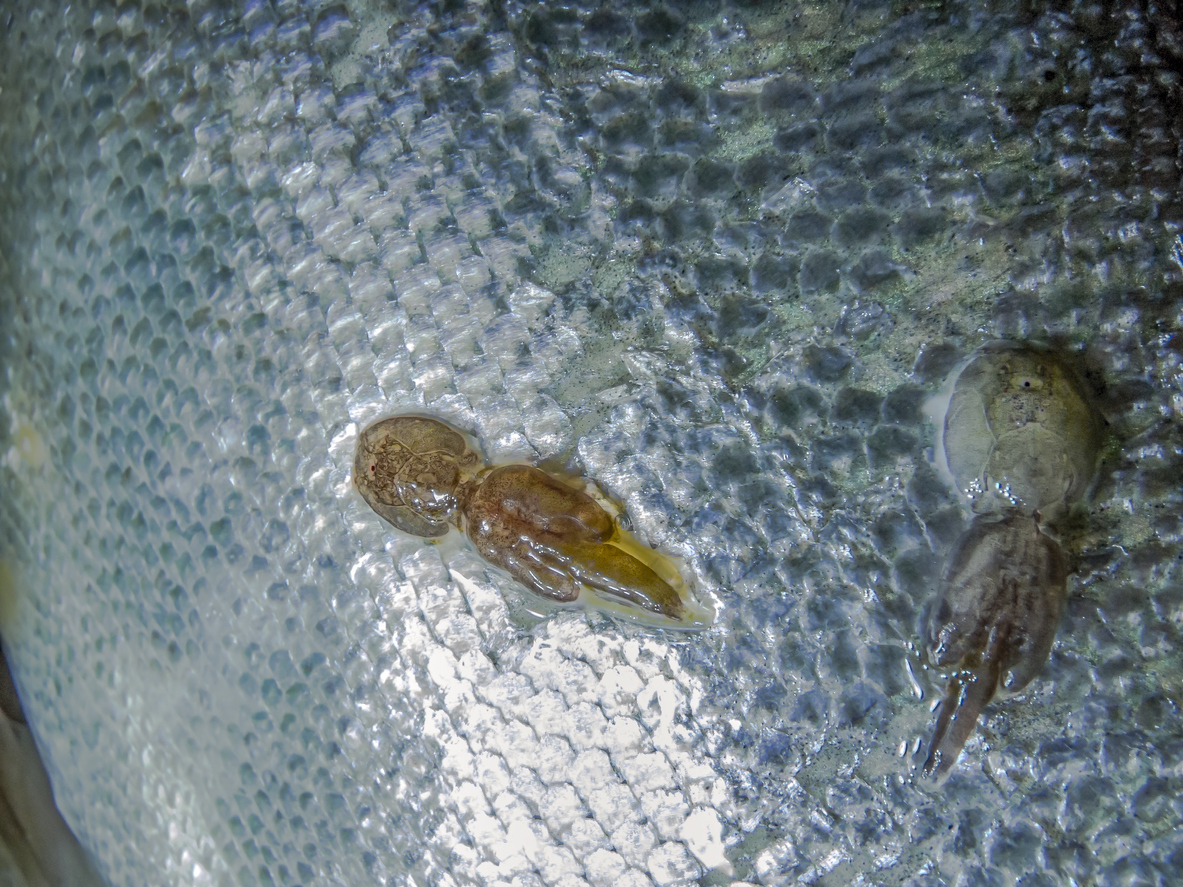
International Project to Explore Gene Editing to Manage Salmon Lice
September 7, 2022| |
The CrispResist Project is led by the Norwegian food research institute, Nofima, in partnership with researchers from Norway, the United Kingdom, the United States, Canada, Sweden, and Australia. It aims to investigate the possibilities of using gene editing as a tool to manage the parasitic salmon louse without sacrificing the fish's health and welfare.
Salmon louse is a natural parasite and one of the biggest challenges in aquaculture. Previous research about how to control lice has been conducted, but no methods have been fully effective against it. Scientists are now examining other options to control the pest through the CrispResist project, and they are opting to use genome editing to improve and develop the Atlantic salmon's innate genetic resistance against salmon lice. Specifically, the project aims to identify parts of the Pacific salmon's genome that make it resistant to salmon lice, confirm if these genes can be edited to increase the lice-resistance of farmed salmon, and use these findings to potentially develop gene-edited eggs of the Atlantic salmon using CRISPR-Cas9. The scientists are careful to consider fish health and welfare as the driver of their research, and that farmed fish should not be able to cross-breed with wild fish.
Each project partner has a designated role in the CrispResist. Scientists from the University of Bergen are contributing their vast knowledge about salmon lice to the project, while those from the University of Melbourne are studying the ability of the louse to adapt to changes when introduced to the salmon. The University of Edinburgh is in charge of studying population dynamics of salmon lice to determine if reducing the numbers of lice in fish farming will have an effect on wild salmon. Other project partners are the University of Stirling, Rothamsted Research, University of Prince Edward Island, Bigelow Laboratory for Ocean Sciences, University of Gothenburg, Norway's Institute of Marine Research, Benchmark Genetics, SalMar ASA, and Mowi ASA.
More details can be found in Nofima's press release.
| |
You might also like:
- International Team Has Sequenced the Atlantic Salmon Genome
- AquaBounty's GE Atlantic Salmon Gets Approval in Brazil
- Newly Hatched Genetically Engineered Salmon Showcased in Albany
Biotech Updates is a weekly newsletter of ISAAA, a not-for-profit organization. It is distributed for free to over 22,000 subscribers worldwide to inform them about the key developments in biosciences, especially in biotechnology. Your support will help us in our mission to feed the world with knowledge. You can help by donating as little as $10.
-
See more articles:
-
Gene Editing Supplement (September 7, 2022)
-
Research and Tools
- Cotton Gene Editing Project to Help Reduce Infestations and Pesticide Use
- International Project to Explore Gene Editing to Manage Salmon Lice
- Experts Redesign CRISPR to Engineer Massive Quantities of Cells
- CRISPR-Cas System with On-off Switch Cuts Proteins Instead of DNA
-
Policy Considerations and Approvals
- Experts Push for Organic-Biotech Partnership for Sustainable Agriculture
-
Public Acceptance and Engagement
- Study Defines Important Aspects in Communicating about Genome Editing in Europe
-
Read the latest: - Biotech Updates (January 28, 2026)
- Gene Editing Supplement (January 28, 2026)
- Gene Drive Supplement (February 22, 2023)
-
Subscribe to BU: - Share
- Tweet

